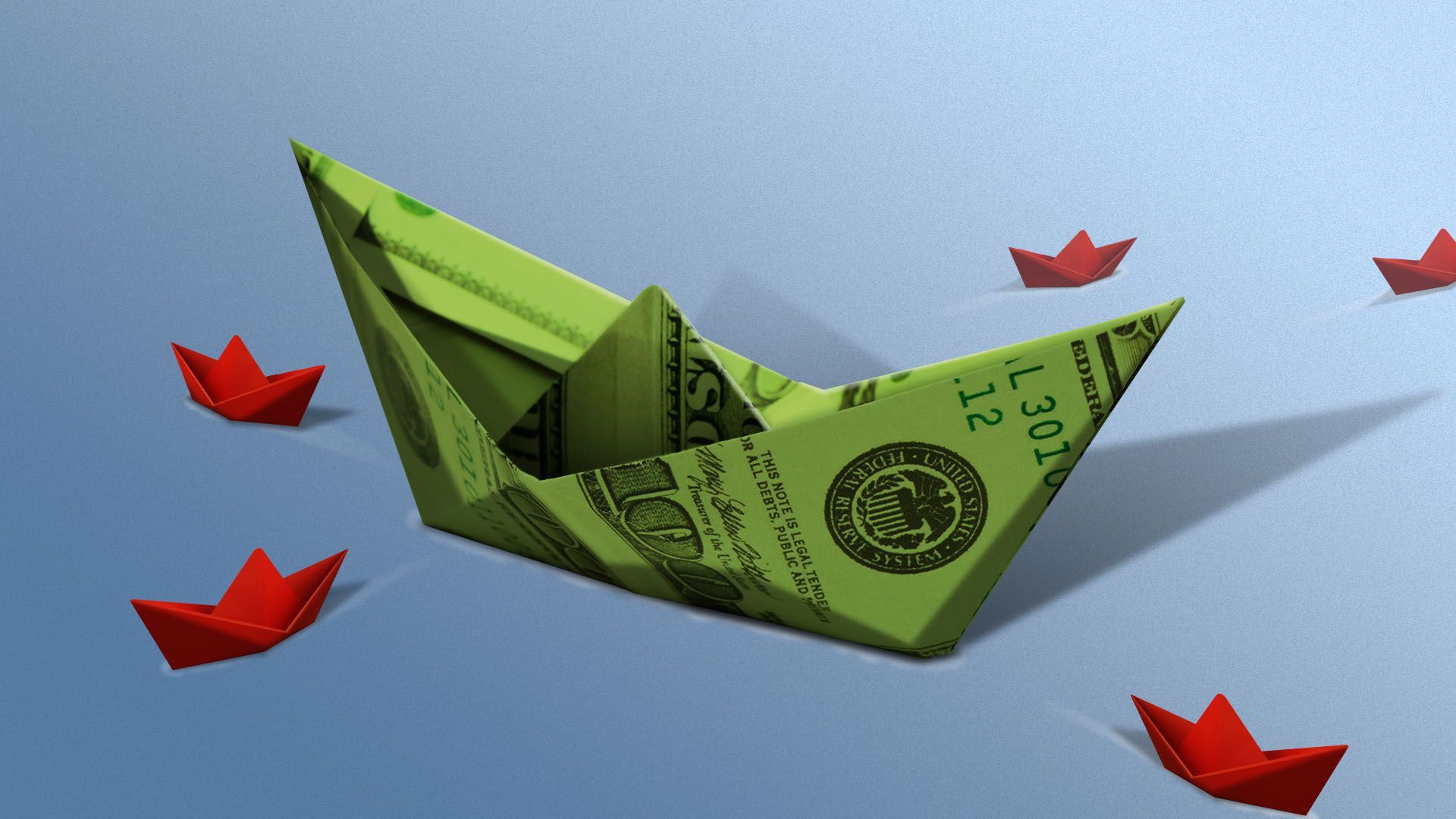The wishful thinking driving capitalism
Add Axios as your preferred source to
see more of our stories on Google.

Illustration: Sarah Grillo/Axios
America's increasing dissatisfaction with capitalism, and its concomitant embrace of socialism, is rooted in the degree to which inequality has increased in recent decades. When all new wealth is retained in the top 1%, the morality of wealth creation switches from good to bad.
Why it matters: Greed — the desire for economic growth — creates perennial wishful thinking with respect to the anticipated consequences of that growth.
- The promise that maximizing economic growth will "lift all boats" has proven hollow.
- The financial crisis of 2008-09 made for a highly unsatisfying morality tale. It devastated struggling borrowers with weak credit ratings, while leaving the financiers who created exploding monstrosities like synthetic CDOs relatively unscathed.
The big picture: Greed is sinful, yet is also the engine of capitalism.
- That deep tension has historically been reconciled with some version of Gordon Gekko's "greed is good" speech — elaborate reasons why the pursuit of profit is really in the best interest of all.
- Flashback: As far back as 1936, the great economist Joan Robinson described economics as a "plan for explaining to the privileged class that their position was morally right and was necessary for the welfare of society."
One area where this all comes to a head is China, or specifically, America's willingness to open its economy to China. Longtime China expert Orville Schell has a masterful overview of U.S. engagement with China in The Wire China — and highlights some of the stated reasons in favor:
- "As people have commercial incentives, whether it's in China or other totalitarian systems, the move to democracy becomes inexorable." — President George H.W. Bush
- "By joining the WTO, China is not simply agreeing to import more of our products, it is agreeing to import one of democracy's most cherished values, economic freedom. The more China liberalizes its economy, the more fully it will liberate the potential of its people... The genie of freedom will not go back into the bottle." — President Bill Clinton
- "The case for trade is not just monetary, but moral. Economic freedom creates the habits of liberty, and habits of liberty create expectations of democracy." — President George W. Bush
- "The fact is that a thriving America is good for China and a thriving China is good for America." — Secretary of State Hillary Clinton
The bottom line: America's engagement with China over the past 50 years has undoubtedly created wealth in both countries. It has also cost an estimated 3.4 million U.S. jobs, and has consolidated power within a brutal communist dictatorship that controls the lives of more than a billion people.
- From Nixon onwards, U.S. presidents have dreamed that money and wealth would inevitably be accompanied in China by a generous side helping of freedom and democracy. They have all been wrong.
